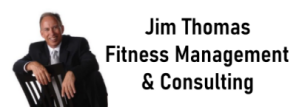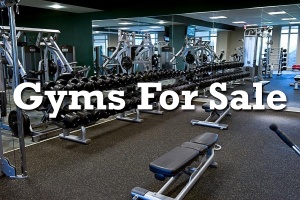Is engineers’ insurance the same as architect’s insurance? Is a landscaper’s insurance the same thing? The answer is no—and yes. Every small business owner needs certain business insurance policies to protect them in case the worst happens. But every business is going to have different needs, risks, and exposure.
Every business owner—from medical professionals, accountants, architects, to landscaping services— should examine their risks and put together a business insurance plan based on that information. Be sure to shop around and find the right insurance company for your small business.
9 Types of Business Insurance to Consider
There are nine basic types of business insurance every small business needs (or should at least think through) to protect your business.
1. General liability Insurance
Every business needs general liability insurance. This type of insurance will cover third-party bodily injury, third-party property damage, and advertising injury (accusations of libel, slander, copyright infringement, etc.). The type of your business, the size, the assets, and corporate structure will determine the amount of coverage you need. Every insurance company will offer different rates and coverage options, so be sure to do your research (or speak with an agent who can help).
2. Commercial Property Insurance
A business should carry commercial property insurance to insure against losses of business or personal property. This type of business insurance policy usually covers damage to the structure and inventory or property within it from damage from storms, fire, theft, or vandalism.
It might make sense to look at a business owners’ policy (BOP) depending on the size and assets of your business. Insurance companies will sometimes offer a BOP to small and medium-sized businesses. A BOP policy will usually combine general liability, property insurance, and business interruption coverage. Additional riders can often be added to this type of policy. It can be a more affordable way for a small business to bundle the coverage you already need.
3. Business Interruption Insurance
If your property is damaged and needs to be repaired, it can often be disruptive to your business. If you can’t remain open during repairs, business interruption insurance can help cover financial losses. It can cover your employee payroll, taxes, operating expenses, debt repayment, and sometimes the cost of a temporary location.
4. Professional Liability Insurance
If you run a business where you offer any kind of professional advice or are responsible for completing projects—such as a doctor, lawyer, or architect—you need to carry professional liability insurance, also known as errors and omissions insurance. This policy can protect you and your business if you’re accused of negligence (or were negligent), missed deadlines, undelivered services, or breach of nondisclosure/copyright insurance. Doctors and other professionals are often required to carry a specialized type of professional liability called malpractice insurance.
5. Workers’ Compensation Insurance
If you hire employees to work in your business, you’re legally required in most states to obtain workers’ compensation insurance. Workers’ comp protects you and your employees if they’re injured or become ill at work. This insurance can cover an employees’ medical expenses and lost wages while they’re recuperating. If an employee agrees to accept workers’ compensation as part of their hiring package, they also usually waive the right to sue you for an incident.
6. Commercial Umbrella Insurance
Sometimes, it can be more affordable for a small business to purchase an umbrella policy instead of upping the limits of an underlying policy with their insurance company. An umbrella policy may also cover business risks that an underlying policy excludes. For example, if the policy limits of your general liability policy are exhausted, the umbrella insurance can step in to cover whatever is remaining.
7. Commercial Auto Insurance
Are vehicles part of your business model? Do you make deliveries or conduct house calls? If you use a car, truck, etc. for business purposes, then you need commercial auto insurance. Did you know if you get in an accident while doing business-related work, your personal car insurance may not cover it? You could lose thousands of dollars to repair your damaged vehicles and be held personally responsible for any injuries or property damage to another person.
8. Cyber Liability Insurance
If your business is the subject of a data breach and customer information that was accessed or stolen, cyber liability insurance can:
- Notify impacted individuals
- Provide them with credit monitoring
- Cover the costs of informing the public if necessary
Some insurers call this data breach insurance. Anyone who stores customer information electronically needs to obtain this type of insurance.
9. Product Liability Insurance
If you manufacture or sell any type of product, you can be held liable if that product injures someone, damages their property, or makes them sick. Product liability insurance can help cover the associated medical costs, replacement of the purchased product, and even legal fees and settlement costs if your business is sued.
Other Types of Insurance to Consider
What other types of insurance should you consider to protect your business?
- Employment Practices Liability Insurance: If you run a business that has high turnover, it may be prudent to consider this type of insurance coverage. It protects small business owners if they’re accused of discrimination, wrongful termination, sexual harassment, etc.
- Key Person Insurance: Is there one person—maybe even you—that is key to the operation of your business? Would things completely stall or fall apart if that person was unable to work? Key person insurance coverage can help cover any associated monetary losses for a certain time until this person is replaced or returns to work.
- Directors and Officers Insurance: Directors and officers often handle the financial management of the company they work for. They take strategic risks for the growth of the business. If the choices they make impact the business negatively, it can put them at risk of being sued. This is where directors and officers insurance comes into play.
- Commercial Crime Insurance: Crime insurance can protect your business if you’re robbed (even by an employee). It can help cover financial losses other types of insurance may not.
- Equipment Breakdown Coverage: Equipment breakdown covers damage to or the loss of A/C systems, boilers, furnaces, and computers and other electronics if they’re damaged by power surges or they breakdown.
A small business should also consider offering different types of employee benefits. In many instances, depending on the size of your business, you’re required to provide disability insurance, health insurance, and other insurance to help protect your employees.
This article isn’t an exhaustive list of the small business insurance options you may need. Because coverage needs can vary significantly from one type of business to the next, we always suggest talking with an insurance company about what you may need.
I’m a Home-Based Business: Do I Need Insurance?
You may be questioning, “What if I run a business from my home? Does any of this apply?” The short answer is yes. You may not have a physical business location, but your homeowners’ insurance will only cover a certain portion of damage to business property. Likewise, most if not all of the other insurance policies apply as well. We recommend speaking to an insurance agent or trusted advisor to help you determine what policies your business needs for proper protection.
Get Small Business Insurance: Speak with an Agent Today
We recommend that you work with a licensed insurance professional and let them guide you through the coverage options available to you now and as your business grows. Together, you will create an insurance package that not only works for you and your business but is affordable as well. If you’d like to work with one of our agents to find the right business insurance coverages, click here.
Click here for more details on financing options or call 214-629-7223 or email jthomas@fmconsulting.net for more information. Or, apply now.
An Outsourced CEO and expert witness, Jim Thomas is the founder and president of Fitness Management USA Inc., a management consulting, turnaround, financing and brokerage firm specializing in the gym and sports industry. With more than 25 years of experience owning, operating and managing clubs of all sizes, Thomas lectures and delivers seminars, webinars and workshops across the globe on the practical skills required to successfully overcome obscurity, improve sales, build teamwork and market fitness programs and products. Visit his Web site at: www.fmconsulting.net or www.youtube.com/gymconsultant.






